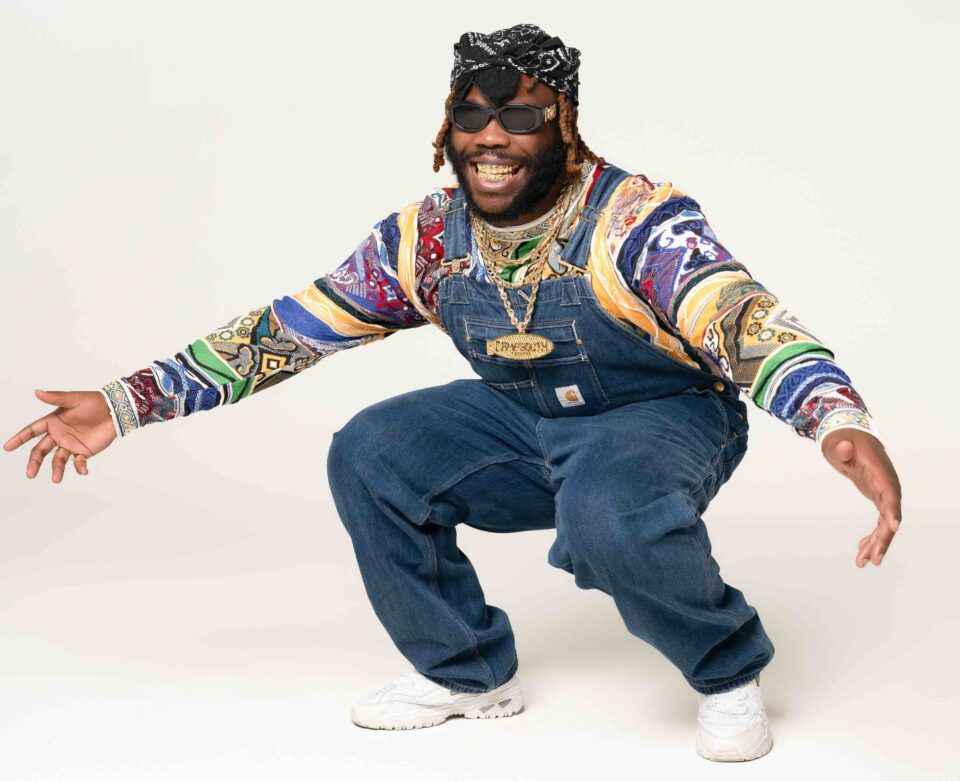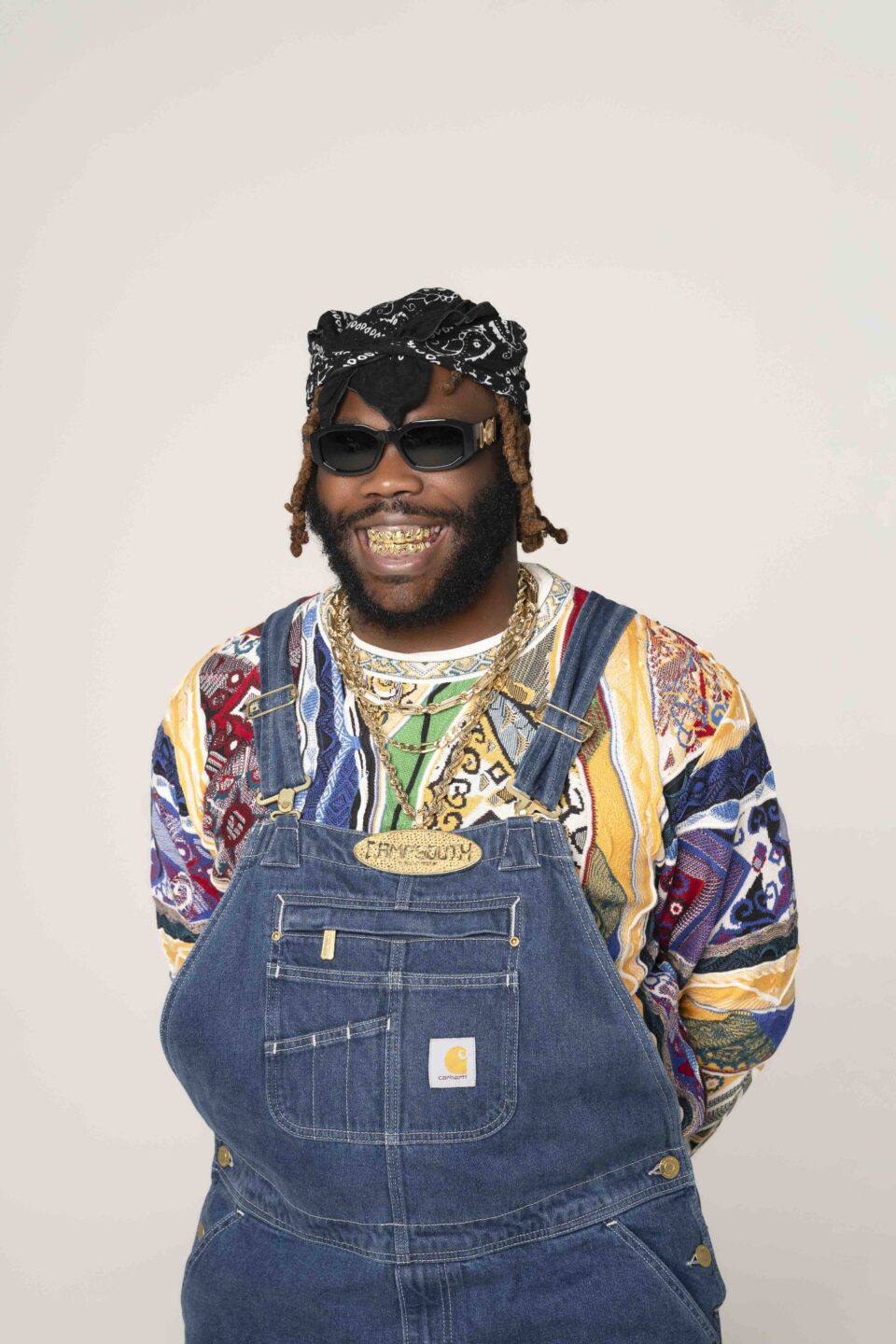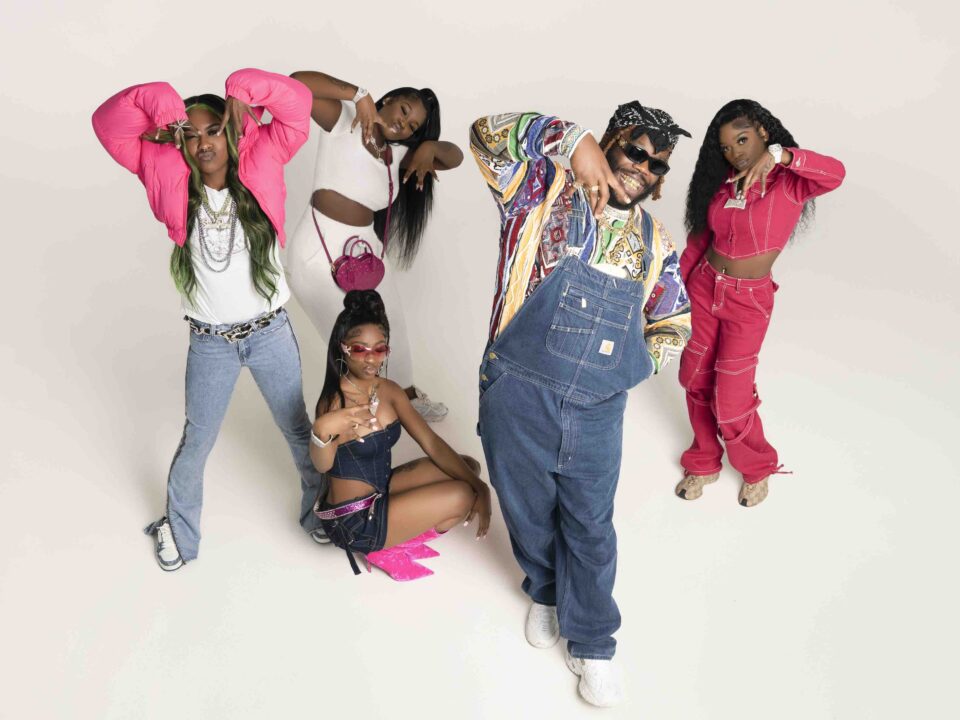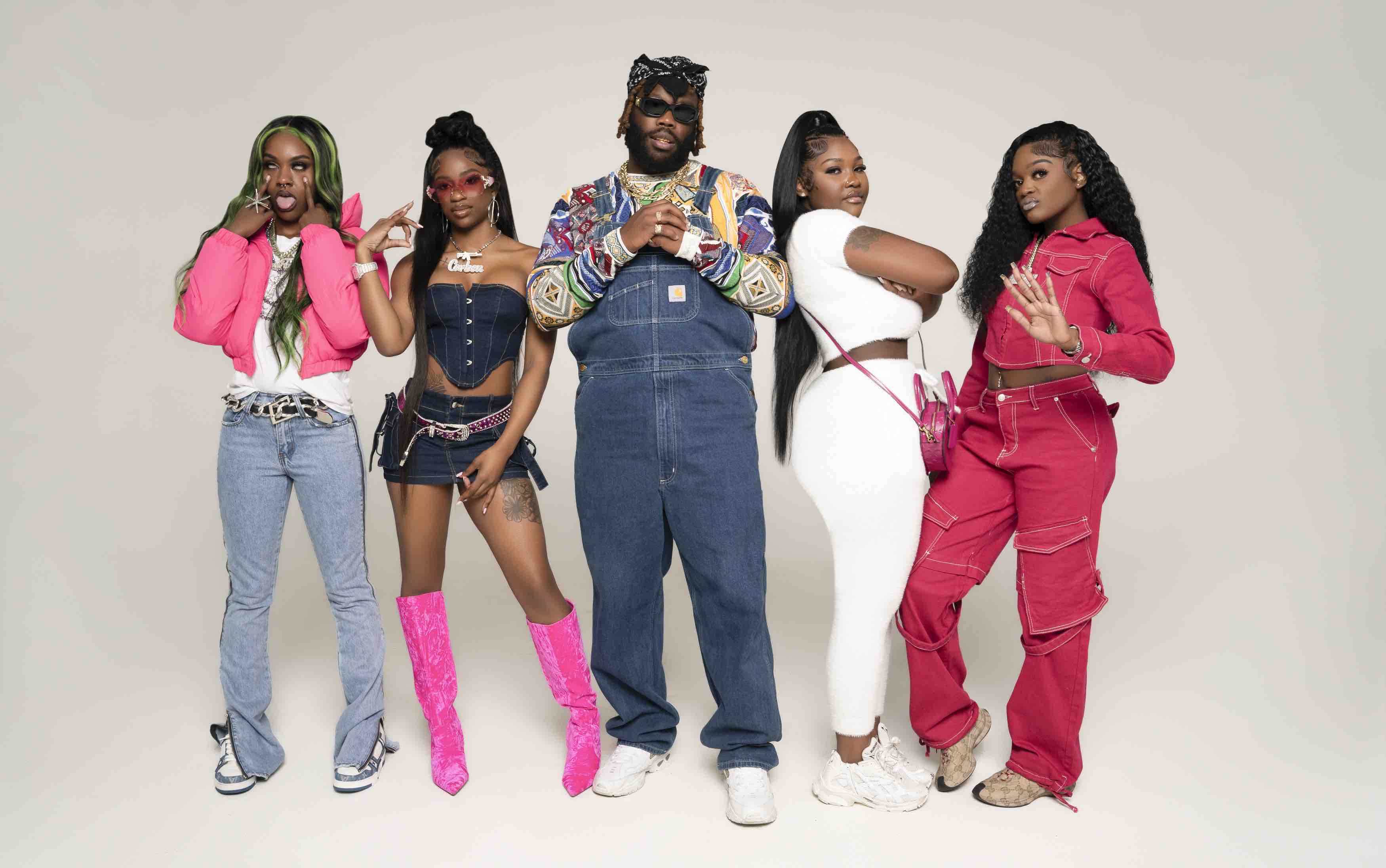For the uninitiated, Hitkidd’s career began in earnest at the end of April 2022 when the producer teamed up with a Memphis rapper named GloRilla to share a song called “F.N.F. (Let’s Go),” which would proceed to take over radio, TikTok, and streaming services for the entire summer. It was a massive moment for Hitkidd and Glo, but it was something the former had been building toward during his rise as one of Memphis’ most important producers. He bristles at being called “GloRilla’s producer”—he loves working with the icon, but he’s built an entire world within Memphis that’s represented by a plethora of exciting voices.
The beatmaker began dropping his own songs in 2018, building his own sound while helping as an architect for the city’s always-innovative aesthetic. Like all good Memphis residents Hitkidd grew up devoted to Three 6 Mafia, but he explains to me that his taste was oddly eclectic. As a kid he would seek out records from Sade. He loves Phil Collins and would be intrigued by producing for Adele. It’s this inquisitiveness—blended, of course, with his distinctly Bluff City beats—that’s made him one of the game’s most in-demand producers.
Since his commercial breakthrough, he’s worked with Don Toliver, Megan Thee Stallion, Duke Deuce, and his idol Juicy J. And yet, on his new album, Renegade, he taps the friends he’s always worked with. When I asked him about his decision to work with mostly female emcees for the project—Gloss Up, Aleza, Slimeroni, and, yes, GloRilla—his answer was simple: “There’s been a void missing ever since Gangsta Boo died.”
No matter how differently Hitkidd’s sound evolves from the styles he grew up obsessed with, the history of Memphis always remains close to home.
When did you realize Renegade was going to be a full album as opposed to just some singles?
When we did [2021’s Set the Tone EP] we already were like, “We want to do a full project.” That’s before I got into business with Blac Noize [Recordings]. We just knew that whatever songs we had left over from the EP, we was going to put that going toward a new project—a bigger project.
Can you talk about your relationship with Slimeroni, Aleza, K Carbon, and Gloss Up? What is it about these emcees in particular that you love working with?
It just feels like I’m working with my family, my nieces or something like that. We always be talking on the phone outside of music, just checking on each other. We might not really talk about nothing, and then we might be talking about something serious. We just built a bond like that. When we’re in the studio, they’re easy to talk to. If one of them might be mad at the other one, or they might be mad at me, or I might be mad at them—we’re able to overcome those small situations in the studio sessions.
Is it more difficult working with three or four rappers at once than just you and one artist?
It really depends on the personnel, honestly. You might have one person who might be more difficult than five artists, and five artists might make the session a little more comfortable. So now I’m able to deal with that a lot better.

Especially with Aleza and Slimeroni, who you work with all the time, it must be pretty easy just to get in the studio with them and everyone knows their role.
Always, yep. I set the tone before we get into the session.
So you’re like a bandleader in a way.
Yeah, I hit up the group chat and I’ll give them a debrief about what’s coming up.
With this project in particular, you’re working with female emcees again. What is it that you like so much about working with female rappers versus male rappers?
They primarily listen more. They tend to leave more room to be produced versus a male artist, because they feel like they got it all figured out.
It’s just a smoother working process?
Yeah, especially if I don’t know the artist. For the most part, I know everybody I deal with. I’m always trying to be friends with the artist before I even start working with them. That gives me a better chance to know if I’m able to work with them.
When did you first link up with Blac Noize?
Probably two hours after “F.N.F” dropped. They was already talking to me about a different project.
“It just feels like I’m working with my family, my nieces or something like that. We always be talking on the phone outside of music, just checking on each other.”
When “F.N.F” dropped, did you know immediately that it would change everything for you and Glo?
No. After we seen certain people react, I was like, “This might go really, really crazy.” We had our expectations of being real popular around the city and the region, but after we seen we got like a million views in 24 hours on Facebook—and we kept getting a million views on Facebook, every post—we were like, “Yeah, this is probably going to be it right here.”
You did so much before that, too, that people don’t really talk about as much. Does that get frustrating for you to sometimes be boxed in as GloRilla’s producer?
I’m going to assume they’re crazy if they say I’m GloRilla’s producer. But I’ll just say I ain’t nobody’s producer. I don’t really like putting nobody in a box myself. I really don’t like it when it’s done to me. It don’t matter who I work with for what amount of time, I’ve built this. I’m just Hitkidd.
What makes Memphis rap different than rap from anywhere else?
It sounds more authentic. Our music looks like our city. What makes that more valuable is the fact that people take what we’re doing and do their own thing. It’s like it all comes from somewhere central, and people build off that.
When you grew up, were you into Memphis rap like Three 6 and that sort of stuff?
Big time. That’s all I would listen to.

“[Memphis rap] sounds more authentic. Our music looks like our city... It’s like it all comes from somewhere central, and people build off that.”
Juicy J’s on “Freak Junt.” That’s awesome.
Juicy’s my favorite producer, I tell him all the time. But I earned my spot here and this is what I’m supposed to be doing.
Who are some other acts on your bucket list to work with in the coming years?
Drake, Rihanna, The Weeknd, Beyoncé. Did I say Rihanna? Maybe Adele.
Have you always been into a lot of different kinds of music?
What everybody be liking now is the bread and butter I would listen to. Even at three to four years old I was listening to that type of music. But outside of that, I was listening to Sade and house music, Detroit footwork music. I also listen to Phil Collins. I like soft rock.
Your production definitely reflects that, too. Is that pretty intentional for you to reflect a bunch of different styles?
It’s just natural. When I sit back and analyze what I made and I think about my inspirations, then I’m like, “OK, if I was to put everything I’m inspired by in a melting pot, you can kind of hear some of them.”
You’re one of the hottest producers in the world. Do you ever allow yourself to step back and reflect on that?
I’m head down, still working. I might go over to this person’s crib and they might be a really big artist. I’m like, “You know what? I’m in here, that’s crazy.” Then I go right to work. I don’t want to get lost in the sauce.
“There’s been a void missing ever since Gangsta Boo died. When she died, I began trying to get a lot of women together to make some hardcore gangster music.”
But you also have the confidence that you belong in those rooms.
Yeah. In fact, I had so much humility that I didn’t go into certain rooms. If I went in a room, I’d be reserved, I’d let everybody do their thing instead of trying to go in. I had to realize I was Hitkidd and I was there for a reason. I had to step into it more. I’m trying to carry that attitude now. I just don’t like that feeling. It makes me feel like I’m trying to be cocky.
If someone comes up to you on the street and is like, “What’s Renegade about?,” how would you describe it?
It’s definitely to support women from Memphis being creative. It’s really just about them, because that’s how we started working together. You don’t have to hold back.
Where does that desire come from, aside from the women you work with being insanely talented?
There’s been a void missing ever since Gangsta Boo died. When she died, I began trying to get a lot of women together to make some hardcore gangster music. I guess that would be my reason for doing that. Everything else that was coming out was so pitty-pat.
It can all be traced to Three 6 and Memphis rap for why you’re doing what you’re doing, huh?
Always. Most definitely. FL








